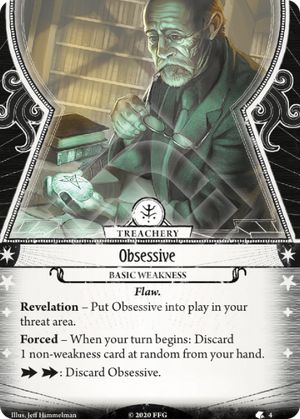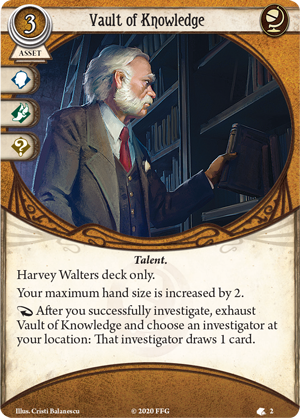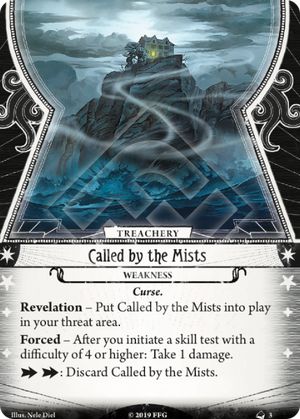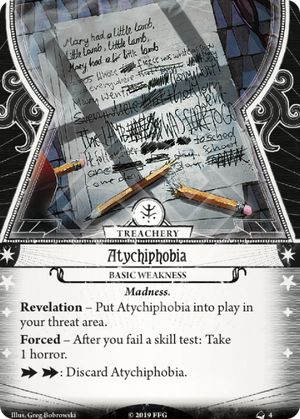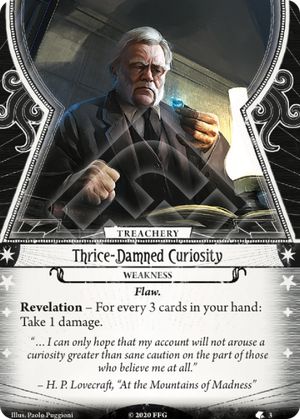
This has been updated to match my "Signature Weakness Project." I have done my best to make sure that the original content isn't altered too much, out of respect for any comments.
A weakness with a strong theme, although mechanically, it's kind of a blunt tool. Looking at the two elements, the effect and the discard condition, we get:
The effect: Harvey takes 1 damage for every 3 cards in his hand. The good news is that this won't kill Harvey outright from full Health unless you are doing some Dream-Enhancing jankery before you find this. The bad news is that you will want to keep your hand size low until you draw this, and that is not Harvey's jam. Much like The Home Front, timing is going to be everything with this card, and is not exactly great with soaking Damage. You could work with Charisma and Miskatonic Archaeology Funding to build a meat shield, but that's a lot of XP, Resources, and actions (plus MAF limits the soak they can offer you). You could add Mr. "Rook" and dig like crazy for it, but Harvey doesn't really need Rook otherwise, since he will have his whole deck in is hand sooner or later. Scroll of Secrets can try to fish it out, but that is a bit of a long shot. Really, it boils down to "keep your hand small until drawn" or "stock up on soak."
On the other hand, nothing says "gambling with your life" like being a faculty member with a grant opportunity on the line.
The discard condition: One and done, although it goes into the discard pile, and Harvey is great at decking himself, so....
All in all, this is an average signature weakness, maybe a bit worse in long scenarios. I kind of wish it was themed better like "put a resource on this card for each 3 cards in your hand. remove one resource. Discard when there are no resources. Harvey cannot take other actions while this card is in play." Perfect distracted professor!
